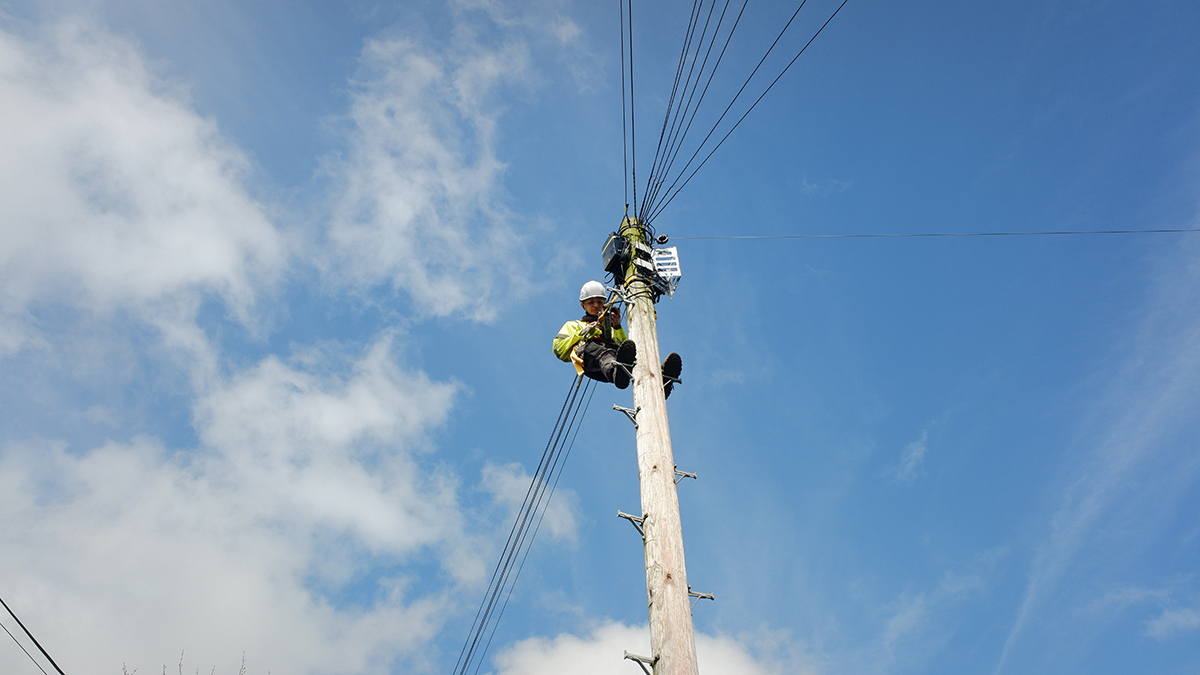
News
Diversity in Utilities – a Look at Inclusivity in the Industry

While progress has been made, women and ethnic minorities are still underrepresented in utilities.
This was made clear in a recent talk Re-flow attended at Utility Week Live 2024, hosted by Womens’ Utilities Network, chaired by, Hayley Monks (founder, Womens Utilities Network) with speakers Justine Leadbetter (head of demand management, Water Research Centre), Fiona Jackson (managing director, Fiona Jackson Consulting), Mike Keil (chief executive, CCW) and Gary Ford (co-founder, Men for Inclusion).
The main talking points included encouraging more women into the industry to overcome the aging workforce, the growing skills gap and allyship.
As recruitment shortages continue, diversifying the workforce seems like a possible fix. However, industries with more financial heft, or with links to ‘exciting new technology’ win out more often than not.
This article explores the current state of diversity in utilities, the challenges faced, and the initiatives aiming to foster a more inclusive environment that might make a difference.

Current State of Diversity and Inclusion
Despite employing a substantial workforce, the utilities sector still lags in diversity. Only 7% of employees are from Black, Asian, or minority ethnic groups, compared to 13% nationally. Women make up just 14% of the workforce.
For people with disabilities, numbers within the workforce are more positive, with the most-recent report from Energy & Utility Skills from four years ago, stating representation is at 15%, just 1% beneath the national average.
Challenges and Barriers
Pre-existing prejudices contribute to a lack of diversity, with 73% of Black, Asian, and minority ethnic students fearing workplace discrimination. 53% of workers have reported hearing racist, sexist, or homophobic language on construction sites within the past year.
Social barriers for women also persist, with a lack of clear role models, limited career progression opportunities, and disrespectful work environments frequently cited as critical reasons for the gender disparity.
Something else of concern is that, alongside that low figure of 14% of the workforce in utilities being female, 1 in 3 women are considering leaving the sector.
One of the reasons for this is likely to be financial. The energy and utilities sector has a bigger-than-average gap: 19% in favour of men.

Initiatives and Programs Promoting Diversity
Promisingly, efforts to promote diversity and inclusion are underway, with various initiatives showing promising results.
Energy & Utility Skills’ Inclusion Commitment
This initiative brings industry leaders together and focuses on five principles to ensure workforce resilience and representation. The philosophy centres around:
- Ensuring the energy and utilities sector workforce is inclusive and diverse.
- Being inclusive to enable the sector to attract and retain a diversity of talent, a crucial step towards ensuring a resilient workforce.
- Adapting to the changing environment and being inclusive in order to help the industry be more innovative and achieve greater productivity.
The five principles are to:
- Work collaboratively as a sector to drive change and do things differently by sharing best practice and delivering sector priorities.
- Focus on inclusion in its entirety – by increasing gender, Black, Asian and ethnic minority and disability workforce representation.
- Measure and be transparent about progress in individual organisations and as a sector.
- Create the culture needed to attract the workforce of tomorrow.
- Be inclusive in the way people are attracted, recruited, and developed.
Currently, 56 organisations have signed up to these principles, companies like Siemens, National Grid, E-on, and United Utilities.

Anglian Water's Strength in Diversity Initiative
This program aims to recruit over 800 new apprentices by 2030, providing young people with valuable career opportunities and ensuring a steady pipeline of fresh talent, while aiming to help the water company’s workforce better reflect the diversity of the region it serves.
This is a long-term pipeline launched in 2021 that aims to see results in five to ten years. Apprenticeships offer a pathway to full-time employment, with successful candidates guaranteed a job at Anglian Water upon completion of the program.
Women in Utilities Network (WUN)
At the Utility Week Live 2024 event, WUN highlighted the importance of changing workplace culture through mentorship and sponsorship programs. Their efforts focus on creating an inclusive environment where women can thrive, addressing the cultural changes necessary to support gender equality. Today, it takes longer to recruit a woman into a job than a man, and the number one thing preventing women from getting into senior-level roles is that they don’t want to be in a predominantly male culture.
The Future of Diversity and Inclusion in Utilities
The future holds significant opportunities for enhancing diversity in the utilities sector. The number of young adults entering the workforce is expected to increase by 25% by 2030, presenting a chance to attract diverse talent. Apprenticeships are a vital tool in this endeavour, offering pathways to fulfilling careers while addressing the sector's talent needs. Inclusive hiring practices and leadership are essential in driving this change, ensuring that the workforce reflects the diversity of society.
Anglian Water's apprenticeship program has already been a game-changer, offering new talent the chance to build a career in the utilities sector. Similarly, the Women in Utilities Network has been instrumental in fostering a supportive environment for women, helping them navigate and succeed in a traditionally male-dominated industry.
Diversity and inclusion are not just buzzwords but essential components for the success and sustainability of the utilities sector. While challenges remain, the concerted efforts of industry leaders and initiatives are paving the way for a more inclusive future. By embracing diversity, the utilities sector can better serve its community, drive innovation, and create a more equitable workplace for all.
To learn more about diversity and inclusion initiatives in the utilities sector, visit Energy & Utility Skills and the Women in Utilities Network.



